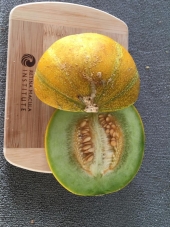
 4
4




“We can complain because rose bushes have thorns, or rejoice because thorn bushes have roses.” — Abraham Lincoln

 4
4








“We can complain because rose bushes have thorns, or rejoice because thorn bushes have roses.” — Abraham Lincoln
 4
4




Moderator, Treatment Free Beekeepers group on Facebook.
https://www.facebook.com/groups/treatmentfreebeekeepers/





 2
2




Michael Cox wrote:They can also send down new root where the vine rests on the ground. As an experiment I pegged a pumpkin vine down in a few places and each spot put down new strong roots. I’m assuming that extra roots is a good thing!
 2
2




Moderator, Treatment Free Beekeepers group on Facebook.
https://www.facebook.com/groups/treatmentfreebeekeepers/





 3
3




I make a Maple Syrup instructional movie! Check it out HERE
SKIP books, get 'em while they're hot!!! Skills to Inherit Property
See me in a movie building a massive wood staircase:Low Tech Lab Movie
 3
3




Moderator, Treatment Free Beekeepers group on Facebook.
https://www.facebook.com/groups/treatmentfreebeekeepers/





 3
3




Mike Haasl wrote:Has anyone done an autopsy on the roots that a squash puts down from the vine? Are they big root systems or are they just anchors to keep the vine from blowing in the wind? I'm assuming they do all the things a normal root system would do but I figured I'd ask.
New location. Zone 6b, acid soil, 30+ inches of water per year.
https://growingmodernlandraces.thinkific.com/?ref=b1de16
Growingmodernlandraces.com affiliate
 3
3




Annie Collins wrote:So it makes sense that Jen was seeing better than ever melon plant growing when she let the vines sprawl and grow out to sides rather than growing the plant vertically. It sounds like that's the better way to grow melons. That's a shame for people that have small properties and not much room to let them sprawl.
New location. Zone 6b, acid soil, 30+ inches of water per year.
https://growingmodernlandraces.thinkific.com/?ref=b1de16
Growingmodernlandraces.com affiliate
 1
1




Lauren Ritz wrote:
Makes me wonder about the possibility of air rooting the vertical plants--pockets of soil wrapped around the stems so give the plant the opportunity to root vertically? I'll have to think about it. Maybe train them on a block wall and fill some of the blocks with soil?








Standing on the shoulders of giants. Giants with dirt under their nails
 1
1




Jan White wrote:I'd be tempted to just not water them, especially seeing as you have them mulched. I don't water my squash, which grow in veeeery sandy soil, and don't get any rain for 2+ months. I haven't had success with melons yet, but that doesn't seem to be a water issue.
Moderator, Treatment Free Beekeepers group on Facebook.
https://www.facebook.com/groups/treatmentfreebeekeepers/





 1
1




Michael Cox wrote:I toured a country house here in England a couple of years ago, with grand formal gardens but also lots of vegetable and herb gardens as well. I happened to bump into the gardeners and comments on how amazing their squash plants looked compared to mine. Their answer "Lots more water than you think they need". And theirs were seriously impressive. Have you the possibility of trying a side by side test? One patch watered and another not?
New location. Zone 6b, acid soil, 30+ inches of water per year.
https://growingmodernlandraces.thinkific.com/?ref=b1de16
Growingmodernlandraces.com affiliate
 1
1




 2
2




Michael Cox wrote: "Lots more water than you think they need". And theirs were seriously impressive. Have you the possibility of trying a side by side test? One patch watered and another not?
 4
4




New location. Zone 6b, acid soil, 30+ inches of water per year.
https://growingmodernlandraces.thinkific.com/?ref=b1de16
Growingmodernlandraces.com affiliate
 1
1




“We can complain because rose bushes have thorns, or rejoice because thorn bushes have roses.” — Abraham Lincoln

|
a wee bit from the empire
Free Seed Starting Webinar Weds Feb 4, 3PM PST / 6PM EST
https://ortakitchengarden.com/pages/permies-seed-class-landing
|



